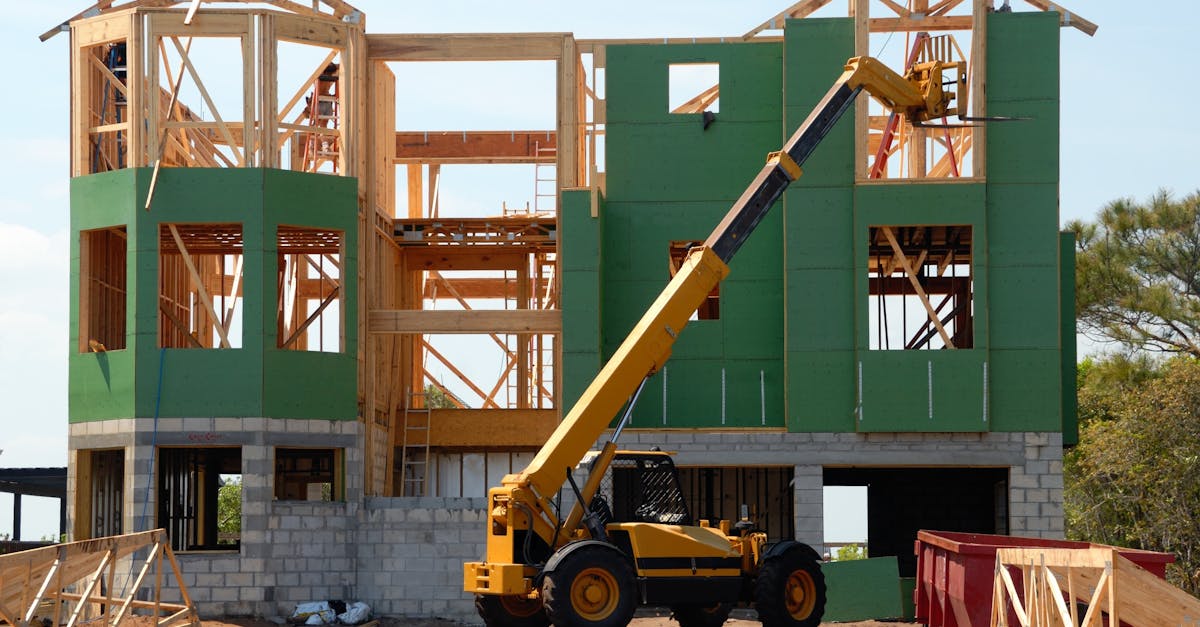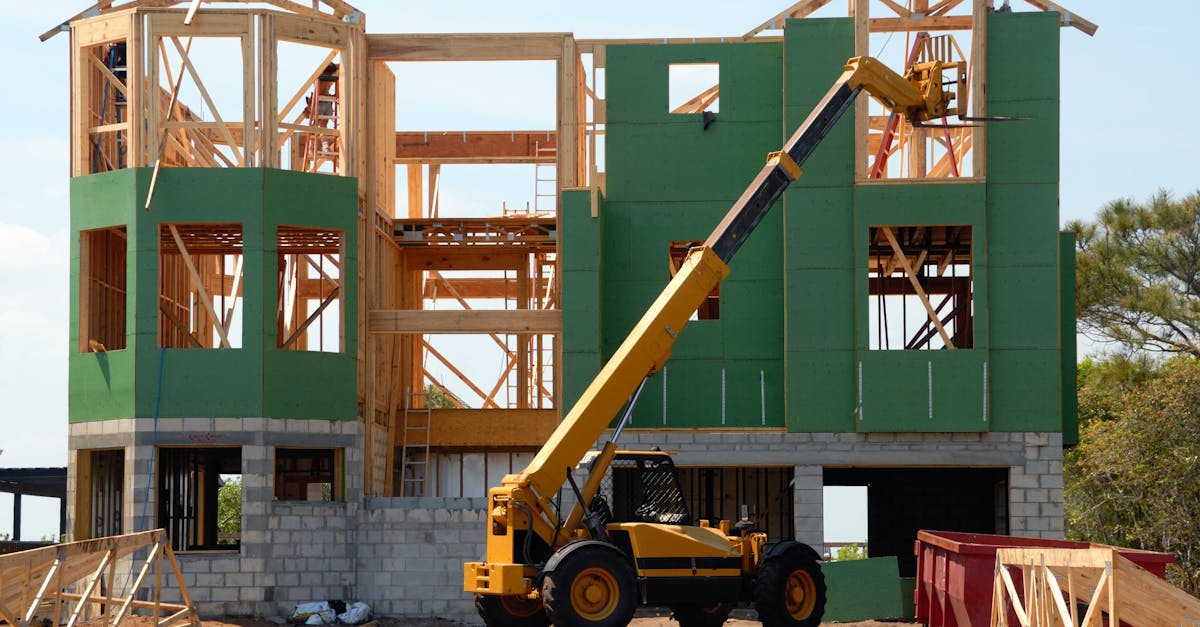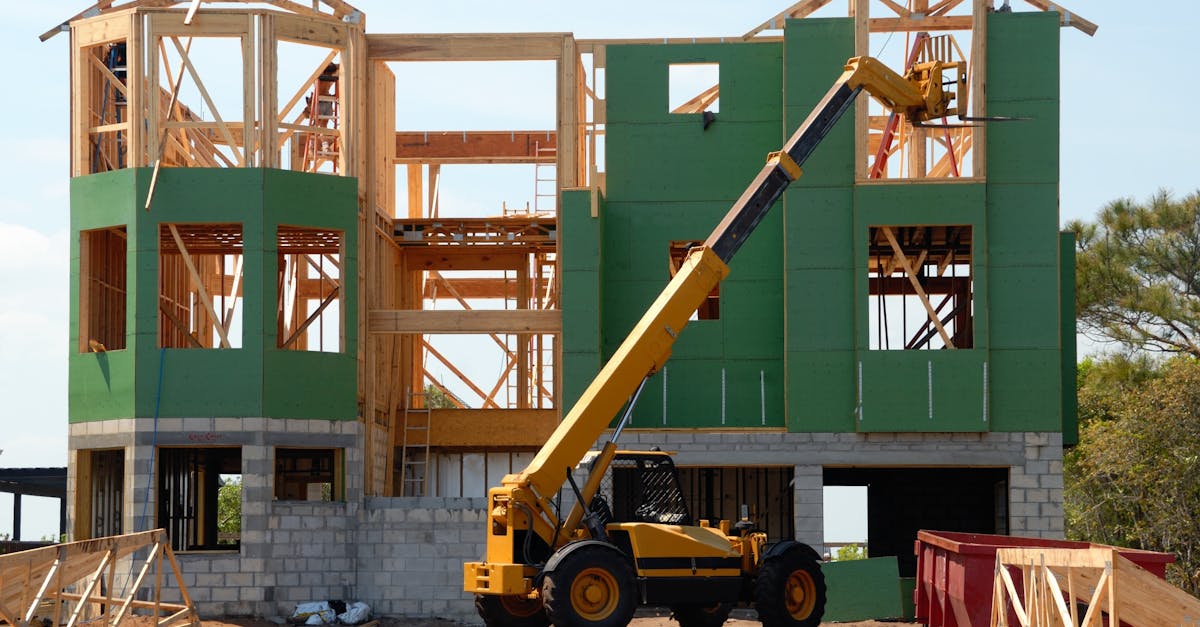
Legal Remedies for Easement Violations
When easement violations occur, property owners have several formal legal remedies at their disposal. One of the most common options is to seek a court order to enforce the easement or compel compliance from the violating party. Courts may issue inju...
Read more →
The Importance of Title Searches in Property Rights
Title insurance provides critical protection for property buyers and lenders against potential defects in the title that may not have been discovered during a title search. When a title search is conducted, it aims to uncover any liens, claims, or is...
Read more →
Types of Easements and Their Legal Implications
A conservation easement is a legally binding agreement that restricts certain types of development on a property in order to protect its natural, scenic, or historical values. This type of easement is often held by land trusts, government agencies, o...
Read more →
Prescriptive Easements: What You Need to Know
Many people mistakenly believe that prescriptive easements automatically grant ownership rights to the land used over a certain time. In reality, these easements only provide a right to use the property in a specific manner. The original owner retain...
Read more →
Common Disputes Over Property Rights and Easements
An easement that grants a designated path for individuals or vehicles can significantly impact property use. Rights of way are legal permissions allowing access across someone else's land, often necessary for reaching public roads or other essential ...
Read more →
The Process of Establishing an Easement
An easement agreement serves as a legal document outlining the rights of one party to use a portion of another party's property for a specific purpose. When drafting this agreement, clarity is essential. The document should specify the type of easeme...
Read more →
The Impact of Zoning Laws on Property Rights
When property owners seek to use their land in ways that differ from the current zoning regulations, they often turn to variances or exceptions. These allow for modifications to specific zoning requirements. Applicants typically need to demonstrate h...
Read more →
How to Negotiate Easements with Neighboring Property Owners
Successful negotiation begins with establishing clear communication. Both parties must express their needs and concerns openly. Setting a time to meet in a neutral location can foster a positive atmosphere. Listening actively to the other side's pers...
Read more →
The Role of Easements in Property Development
Easements can often lead to misunderstandings between property owners, particularly regarding usage rights and responsibilities. Property boundaries may not be clearly defined, causing disputes over the extent of easement privileges. For instance, a ...
Read more →
The Relationship Between Environmental Impact Assessments and Zoning Laws
Zoning laws vary significantly across different regions, shaped by local priorities, population density, and environmental contexts. In urban areas, where land is scarce and demand is high, laws may focus on maximizing density and promoting mixed-use...
Read more →
Understanding Property Rights in Real Estate Transactions
Zoning laws play a critical role in shaping the development and use of land within a municipality. These regulations dictate how property can be utilized, establishing categories such as residential, commercial, industrial, and agricultural zones. By...
Read more →
Best Practices for Preparing an Environmental Impact Assessment
An effective Environmental Impact Assessment (EIA) report serves as a crucial tool in environmental planning and management. It must provide a detailed outline of potential environmental effects related to a proposed project. Emphasizing clarity and ...
Read more →
The Future of Environmental Impact Assessments in Real Estate Development
Climate change has emerged as a critical factor influencing the methodologies employed in environmental impact assessments. An increase in extreme weather events, rising sea levels, and shifting ecosystems necessitate a more comprehensive evaluation ...
Read more →
Case Studies: Environmental Impact Assessments in Action
Environmental Impact Assessments (EIAs) vary significantly across countries, shaped by local regulations, cultural attitudes toward the environment, and political priorities. In the United States, the National Environmental Policy Act (NEPA) emphasiz...
Read more →
How Environmental Impact Assessments Affect Property Development
Stakeholder engagement plays a crucial role in the effectiveness of environmental impact assessments. Involving various parties, including local communities, government agencies, and environmental organizations, fosters a collaborative atmosphere whe...
Read more →
Common Challenges in Conducting Environmental Impact Assessments
Conducting an environmental impact assessment often demands thorough investigation and detailed analysis. Tight deadlines can compress these essential processes. This urgency may lead to superficial evaluations that overlook critical environmental va...
Read more →
Navigating State and Federal Regulations for Environmental Impact Assessments
Effective environmental mitigation strategies are essential for minimizing adverse impacts associated with various projects. These strategies involve proactive measures that aim to prevent, reduce, or compensate for potential environmental damage. Co...
Read more →
Key Components of an Environmental Impact Assessment
Effective mitigation measures are crucial in reducing the adverse effects of proposed projects on the environment. These strategies can include adjusting project designs, altering operational procedures, or implementing additional technology to minim...
Read more →
The Role of Real Estate Lawyers in Environmental Impact Assessments
Real estate lawyers play a critical role in pinpointing potential environmental risks that could affect a property. They must be well-versed in local, state, and federal regulations that govern land use and environmental protection. By conducting tho...
Read more →
Understanding the Importance of Environmental Impact Assessments in Real Estate
Implementing environmental impact assessments (EIAs) in real estate projects often faces significant hurdles. One of the primary challenges is the complexity of the regulatory landscape. Different jurisdictions may have varying requirements and proce...
Read more →
Future Trends in Land Use and Development Law
The landscape of housing development is increasingly shaped by a wave of regulatory changes aimed at addressing both the housing crisis and environmental sustainability. Local governments are reevaluating zoning laws to allow for higher density housi...
Read more →
Legal Challenges in Land Use Planning and Development
Land use regulations often impose strict requirements on property modifications and developments. In certain cases, property owners may seek variances and special permits to deviate from these established rules. A variance allows for a modification o...
Read more →
Case Studies in Successful Land Use Planning
Zoning regulations serve as a fundamental framework guiding land use by establishing rules for how land can be developed and utilized within a community. These regulations dictate everything from building heights and densities to the types of busines...
Read more →
Navigating Local Zoning Codes for Development
Zoning boards and commissions serve as essential governance structures in local land-use regulation. They are tasked with interpreting zoning ordinances and making decisions that guide the development process. Their responsibilities include reviewing...
Read more →
The Importance of Comprehensive Plans in Development
Comprehensive planning often faces several challenges that can impede effective execution. One common issue is the lack of stakeholder engagement. When community members, local businesses, and other key parties do not actively participate in the plan...
Read more →
The Impact of Community Input on Land Use Decisions
Social media has fundamentally transformed how communities engage with land use decisions. Platforms like Twitter, Facebook, and Instagram enable residents to share their opinions and concerns with a wider audience. This instant communication fosters...
Read more →
Strategies for Effective Land Use Planning in Urban Areas
Incorporating green spaces into urban landscapes offers numerous benefits, enhancing both the aesthetic appeal and environmental quality of cities. Parks, gardens, and natural areas provide essential habitats for wildlife and serve as critical compon...
Read more →
Key Considerations for Sustainable Land Use Planning
Sustainable land use planning directly impacts local economies by influencing property values, development opportunities, and job creation. When land is used responsibly, it can lead to increased agricultural productivity, enhanced tourism, and impro...
Read more →
The Role of a Real Estate Lawyer in Land Development Projects
In land development projects, environmental considerations are paramount. A real estate lawyer plays a crucial role in navigating the complexities of local and federal regulations concerning environmental protection. They assess the potential impacts...
Read more →
Best Practices for Securing Special Permits
Establishing open lines of communication with local authorities is essential when seeking special permits. Taking the initiative to introduce yourself and your project can create a positive impression. Engaging early allows you to clarify expectation...
Read more →
Understanding the Basics of Land Use Planning
The land use planning process involves a systematic approach to making decisions about how land should be used and regulated. At its core, the process aims to balance economic, social, and environmental considerations. It typically starts with identi...
Read more →
Impact of Variances on Property Value
Home renovations and upgrades play a crucial role in influencing property values. When homeowners enhance their spaces through modern kitchens, updated bathrooms, or energy-efficient windows, the perceived value of the home typically increases. Not o...
Read more →
Legal Challenges to Variance Decisions
Legal disputes over variances often serve as pivotal moments in zoning law, influencing both community standards and regulatory practices. One notable case is *Nimby v. City of Springfield*, where residents challenged the granting of a variance for a...
Read more →
Navigating Local Zoning Boards for Special Permits
Organizing your thoughts and materials before the meeting can significantly influence how your case is perceived. Prepare a concise presentation that highlights the key points of your proposal. Visual aids such as maps, photographs, or diagrams can c...
Read more →
Case Studies of Successful Variance Applications
Commercial variance applications serve as a crucial mechanism for businesses seeking to navigate zoning regulations that may not accommodate their operational needs. These applications allow for deviations from traditional zoning codes, enabling prop...
Read more →
The Role of a Real Estate Lawyer in Variance Applications
During public hearings, the presence of a real estate lawyer is crucial for effectively presenting a client's case regarding variance applications. These legal professionals prepare their clients to articulate their needs clearly and confidently. The...
Read more →
Common Mistakes When Applying for Variances
Meeting application deadlines is crucial in the variance process. Each municipality has specific timelines for submitting applications, and missing these can result in substantial delays or outright rejection of the request. Applicants should be awar...
Read more →
Special Permits vs. Variances: Key Differences
Applications for a special permit become essential when a property owner seeks to use their land in a manner not typically allowed by zoning regulations. This could involve activities that may have a limited impact on the surrounding area. Local gove...
Read more →
The Process of Obtaining a Special Permit
Before embarking on the journey of obtaining a special permit, it's essential to familiarize oneself with local regulations. Each municipality has its own set of rules that dictate how land can be used, including specific requirements for special per...
Read more →
Understanding Variances in Zoning Laws
Property owners may find themselves in situations where strict adherence to zoning laws creates challenges that hinder their development plans. These laws are designed to maintain order and predictability within communities. However, unique circumsta...
Read more →
The Future of Zoning Laws in Urban Development
Zoning laws play a significant role in shaping the landscape of affordable housing. These regulations dictate land use, determining what types of structures can be built in various areas. Often, strict zoning codes can limit the creation of multi-fam...
Read more →
Key Differences Between Residential and Commercial Zoning
Commercial zones are subject to a distinct set of building regulations that differ from those applied to residential areas. These regulations typically address the scale and function of structures, ensuring they are designed to accommodate commercial...
Read more →
Zoning Compliance and its Impact on Property Value
Failure to adhere to zoning regulations can lead to several significant repercussions for property owners. Such non-compliance often results in legal actions initiated by local authorities, which may include cease-and-desist orders to halt any unlawf...
Read more →
The Process for Applying for Zoning Changes
Developing a solid relationship with local officials plays a crucial role in navigating the zoning change process. Building rapport can enhance understanding and increase support for your application. Initially, it is essential to schedule meetings t...
Read more →
Common Zoning Challenges Faced by Property Owners
Property owners often seek variances when their intended use of land does not conform to local zoning laws. These requests allow for exceptions, particularly in situations where strict adherence to regulations may cause undue hardship. A variance typ...
Read more →
The Role of Zoning Boards in Real Estate Transactions
Public hearings serve as a critical platform for community engagement in zoning decisions. Residents often have the opportunity to voice their opinions, express concerns, and ask questions regarding proposed changes. These forums typically include di...
Read more →
Navigating Local Zoning Ordinances
Local governments play a crucial role in the establishment and enforcement of zoning ordinances. These ordinances dictate land use within specific areas, shaping the development patterns of communities. Through zoning regulations, local governments a...
Read more →
How Zoning Laws Affect Property Development
Zoning laws play a crucial role in determining property values within a given area. When zoning regulations are strictly enforced, they can enhance predictability and stability, thereby increasing investor confidence. Conversely, when restrictions ch...
Read more →
The Importance of Zoning Regulations in Real Estate
Zoning changes involve a multi-step process that typically begins with a proposal from a property owner or developer. This proposal is often grounded in the desire to maximize the potential of a property through new development, additional uses, or i...
Read more →
Understanding the Basics of Zoning Laws
Zoning codes serve as a framework for land use regulation within a community. These codes delineate specific areas where different types of activities can occur, such as residential, commercial, or industrial uses. Each zone is assigned particular st...
Read more →
The Importance of Title Searches in Real Estate Transactions
In real estate transactions, ensuring that a property's title is free from defects is crucial. Title searches play a pivotal role in this process by investigating the history of ownership and any existing encumbrances. When a title search is performe...
Read more →
Preventing Title Disputes Before They Happen
Clear and consistent communication is essential to prevent misunderstandings among stakeholders. Regular updates about property matters can minimize confusion and ensure that everyone is on the same page. Utilizing various communication channels, suc...
Read more →
Steps to Take When Facing a Title Dispute
Open lines of communication with all parties involved in the title dispute. It is essential to approach these discussions with a clear sense of purpose and professionalism. Gather all relevant information and documents related to the title in questio...
Read more →
Navigating Quiet Title Actions
Attorneys play a critical role in quiet title actions, guiding clients through the complexities of property law. They offer valuable legal advice, helping clients understand their rights and the implications of the action. Drafting necessary document...
Read more →
Legal Procedures for Title Dispute Resolution
In title dispute cases, establishing ownership requires substantial evidence. Documentation such as deeds, tax records, and surveys serve as pivotal elements in proving one's claim to a property. These records often reflect changes in ownership and o...
Read more →
The Role of a Real Estate Lawyer in Title Issues
Title insurance serves as a crucial safeguard in real estate transactions, protecting buyers and lenders from potential losses associated with defects in the title. This insurance effectively covers issues such as undisclosed liens, ownership dispute...
Read more →
The Impact of Liens on Property Titles
Liens can complicate property transactions, making it essential for property owners to address them promptly. Clearing a lien involves satisfying the debt or obligation that the lien represents. This might require payment in full, negotiation of a se...
Read more →
How to Resolve Title Claims Effectively
Property transactions often involve intricate title issues. Partnering with a reliable title company can streamline the resolution process, as these companies are equipped with the expertise necessary to identify and address potential claims before t...
Read more →
Common Causes of Title Disputes
Fraudulent title transfers involve the illegal or deceptive transfer of property ownership, often executed through forged documents or impersonation. These actions can take many forms, including tricking a property owner into signing over their right...
Read more →
Understanding Title Insurance and Its Importance
The cost of title insurance varies based on several factors, including the property's location, its purchase price, and the type of policy selected. Typically, these premiums range from a few hundred to several thousand dollars. Many states regulate ...
Read more →
Understanding Mortgage Fraud and Its Consequences
The regulatory framework designed to combat mortgage fraud revolves around a complex interplay of federal and state laws. These laws are established to create safeguards within the lending industry. Agencies such as the Federal Trade Commission (FTC)...
Read more →
How to Challenge a Foreclosure Action
A strong foundation in evidence is crucial for challenging a foreclosure action. Start by collecting all relevant documents related to the mortgage. This includes the original loan agreement, payment history, and any correspondence exchanged with the...
Read more →
The Role of a Real Estate Lawyer in Foreclosure Cases
Homeowners facing financial difficulties often explore the option of loan modifications. This process involves negotiating with lenders to adjust the terms of the mortgage, which can include lowering the interest rate, extending the loan term, or red...
Read more →
What to Expect During a Foreclosure Auction
The auctioneer serves as a pivotal figure in the foreclosure auction process. This individual facilitates the sale by managing bids, making announcements, and ensuring the auction runs smoothly. Their expertise in handling the crowd and maintaining o...
Read more →
Foreclosure Alternatives: Short Sales and Deeds in Lieu
One significant advantage of deeds in lieu is the potential for a quicker resolution compared to the foreclosure process. Homeowners facing financial hardship can often navigate this option with less stress and more direct communication with their le...
Read more →
Legal Rights of Homeowners in Foreclosure
Homeowners confronting foreclosure have several paths to explore that might help them maintain their property. They can opt for a loan modification, which entails negotiating with their mortgage lender to adjust the terms of their existing loan, such...
Read more →
The Impact of Foreclosure on Your Credit Score
Experiencing a foreclosure can lead to a significant drop in your credit score, typically dropping it anywhere between 100 to 200 points. The severity of the impact often depends on your credit standing before the foreclosure. Generally, it takes sev...
Read more →
How to Navigate Mortgage Modification Options
Establishing a collaborative relationship with your lender is crucial when navigating mortgage modification options. Open lines of communication can facilitate a more favorable outcome. Begin by gathering all necessary documentation that demonstrates...
Read more →
Common Defenses Against Foreclosure
Homeowners facing foreclosure may retain a critical right known as the equity of redemption. This legal principle allows individuals to reclaim their property by paying off the owed debt, along with any associated fees, before the foreclosure sale oc...
Read more →
Understanding the Foreclosure Process
Homeowners facing foreclosure possess certain rights designed to protect them during this challenging time. Among these rights is the right to receive a notice of default, which must be sent by the lender before any foreclosure proceedings can begin....
Read more →
The Impact of Eviction on Tenant's Rental History
Eviction records can pose significant challenges for tenants seeking future rental opportunities. To manage these records effectively, individuals should start by ensuring that their rental history is accurate. Tenants can request a copy of their ren...
Read more →
Navigating Lease Agreements and Eviction Risks
Understanding the eviction process is crucial for both landlords and tenants. The procedure typically begins when a landlord delivers an official notice to the tenant. This notice outlines the reason for eviction, which may include non-payment of ren...
Read more →
Eviction Notices: What Tenants Need to Know
Receiving an eviction notice can be a disorienting experience for tenants. The first step is to thoroughly review the document to understand the specific reasons for the eviction. It is essential to take note of deadlines and any required actions, as...
Read more →
Steps Tenants Can Take to Prevent Eviction
Creating a budget is a crucial step in maintaining financial stability as a tenant. This process involves tracking income and outlining all necessary expenses, such as rent, utilities, groceries, and transportation costs. By categorizing these expens...
Read more →
How to Challenge an Unlawful Eviction
Gathering evidence is a crucial step in preparing for legal action against an unlawful eviction. Tenants should collect any relevant documents, including their lease agreement, payment records, and any communication with the landlord. Photographs of ...
Read more →
The Role of a Real Estate Lawyer in Eviction Cases
In eviction cases, real estate lawyers play a crucial role in representing clients during court proceedings. They understand the intricacies of landlord-tenant law and use their expertise to navigate complex legal frameworks. A lawyer’s familiarity...
Read more →
Tenant Rights During Eviction Proceedings
Local laws significantly shape the eviction process and define tenant rights at both state and municipal levels. Variations can arise based on specific state statutes and local ordinances. Some jurisdictions may enforce stricter penalties on landlord...
Read more →
Understanding Eviction Process for Tenants
When facing an eviction, tenants have several defenses they can explore. Understanding the reasons behind the notice is crucial, as improper procedures can lead to unlawful evictions. Tenants may challenge the validity of the eviction notice, especia...
Read more →
Common Reasons for Tenant Eviction
Unauthorized occupants present a significant issue for landlords. When tenants allow individuals to stay in a rental property without the landlord's permission, it can lead to various complications. This situation often violates the lease agreement, ...
Read more →
Legal Protections for Tenants Facing Eviction
Local housing authorities play a crucial role in safeguarding tenants' rights and ensuring access to fair housing. They act as intermediaries between landlords and tenants, providing information about tenants' rights and legal protections. These auth...
Read more →
Preventing Boundary Disputes Through Clear Agreements
Hiring professionals with expertise in land management can vastly improve the clarity of property boundaries. Surveyors are particularly important in this process. They employ specialized equipment to accurately measure land and identify official bou...
Read more →
Navigating Zoning Laws in Boundary Disputes
Local zoning boards play a crucial role in shaping land use regulations. These boards consist of appointed members who evaluate requests for variances, special permits, or changes in zoning classification. Engaging with these boards requires a thorou...
Read more →
The Impact of Fences on Boundary Disputes
Effective mediation techniques play a crucial role in resolving boundary disputes between property owners. One popular approach involves interest-based negotiation, where parties focus on their underlying interests rather than positions. This method ...
Read more →
Case Studies of Successful Boundary Dispute Resolutions
Judicial resolutions play a critical role in settling boundary disputes that can arise between properties. Courts are positioned to interpret laws, analyze evidence, and provide a definitive ruling based on established legal principles. Such decision...
Read more →
How to Prepare for a Boundary Dispute Resolution
Alternative dispute resolution (ADR) encompasses various methods of resolving conflicts without resorting to traditional litigation. Mediation and arbitration are two of the most common forms utilized in boundary disputes. Through mediation, a neutra...
Read more →
The Role of Surveyors in Boundary Disputes
The advancement of tools and technology has significantly transformed the surveying profession. Modern surveyors rely on high-precision instruments such as total stations, GPS receivers, and laser scanners. These devices offer enhanced accuracy and e...
Read more →
Mediation as a Solution for Boundary Disputes
Mediation typically begins with an introduction from the mediator, outlining the process and establishing ground rules. Participants are encouraged to share their perspectives and concerns in a structured environment. The mediator's role is to facili...
Read more →
Legal Framework for Resolving Boundary Disputes
Surveyors play a critical role in the resolution of boundary disputes. Their expertise lies in accurately measuring land and determining property lines based on historical documents, legal descriptions, and actual fieldwork. They utilize specialized ...
Read more →
Common Causes of Boundary Disputes
Surveys play a crucial role in determining property limits, but inaccuracies in these assessments can lead to significant disputes between neighboring landowners. A variety of factors can contribute to surveying errors, including outdated maps, misca...
Read more →
Understanding Boundary Disputes in Real Estate
Surveys serve as critical tools in resolving boundary disputes. They provide a precise depiction of property lines, which can help clarify the extent of land ownership. Professional surveyors utilize established criteria and technology to measure and...
Read more →
Preventing Property Disputes Through Clear Contracts
Engaging legal professionals can provide essential guidance during the creation of property contracts. An attorney with expertise in real estate can help ensure that all necessary provisions are included and that the terms align with applicable laws....
Read more →
Legal Remedies for Different Types of Property Disputes
Property disputes often require parties to consider litigation as a potential solution. Various legal avenues exist, including lawsuits for breach of contract, specific performance, or trespass. Each option comes with its own set of procedural requir...
Read more →
Mediation vs Litigation in Property Disputes
Mediation can sometimes lack the authority to compel compliance, making it challenging to enforce agreements. If one party decides not to adhere to the terms discussed, the resolution may not have legal standing. This can lead to frustration for indi...
Read more →
The Impact of Property Disputes on Real Estate Transactions
Sellers often find themselves facing significant challenges when property disputes arise. Such conflicts can lead to lengthy legal entanglements, causing delays in the selling process. This uncertainty may deter potential buyers, who may hesitate to ...
Read more →
Navigating Easement Disputes in Real Estate
Engaging a legal professional can provide essential guidance in navigating the complexities of easement disputes. Attorneys specializing in real estate law possess the knowledge to interpret easement agreements and offer insights into local property ...
Read more →
How Zoning Laws Affect Property Disputes
Zoning regulations play a significant role in determining property values within a community. These laws dictate how land can be used, influencing the density of development and the types of buildings that can be constructed. Properties in areas with...
Read more →
Distinguishing Between Commercial and Residential Property Disputes
Written agreements serve as critical documents in the realm of property transactions. They provide clarity and establish the terms and conditions agreed upon by the parties involved. Having a written contract diminishes the likelihood of misunderstan...
Read more →
Common Causes of Property Disputes Among Neighbors
Fencing often serves as a physical and symbolic boundary between properties, making it a frequent source of disputes among neighbors. Issues can arise over the installation, maintenance, or height of fences. Disagreements may occur when one neighbor ...
Read more →
Understanding Different Types of Property Disputes
Property owners have a legal obligation to pay taxes on their properties. When taxes go unpaid, local governments can impose penalties, interest, and ultimately initiate foreclosure proceedings. This can result in significant financial strain for pro...
Read more →
The Role of Real Estate Lawyers in Property Disputes
When engaging a real estate lawyer, understanding the fee structure is essential. Lawyers may charge in various ways, including hourly rates, fixed fees, or retainers. Hourly rates can vary significantly based on the lawyer’s experience and locatio...
Read more →
Legal Implications of Errors in Closing Documentation
Legal professionals, including attorneys and notaries, play a vital role in the closing process of property transactions. Their responsibilities encompass a wide range of tasks, such as preparing, reviewing, and executing closing documents. These pro...
Read more →
Tips for Smoothly Navigating the Closing Process
Navigating the closing process requires a clear grasp of the expenses involved. Closing costs typically range from 2% to 5% of the home's purchase price and may include various fees related to the transaction. It is essential to budget for these cost...
Read more →
The Difference Between Closing Costs and Closing Fees
Regional differences significantly influence the amount buyers pay in closing costs and fees. States have varying laws, tax systems, and real estate practices. Consequently, what may be standard in one state could be uncommon in another. For instance...
Read more →
What to Expect During a Real Estate Closing Meeting
The closing meeting is often held at the office of a title company, attorney, or lender. It brings together all parties involved in the transaction, including buyers, sellers, real estate agents, and sometimes lenders. During this meeting, participan...
Read more →
The Importance of Reviewing Closing Documents Carefully
When reviewing closing documents, it is crucial to be vigilant for any inconsistencies or errors. These discrepancies can range from incorrect personal information to missing signatures. It is essential to ensure that all details accurately reflect t...
Read more →
How to Prepare for Closing Day in a Real Estate Deal
Title insurance plays a crucial role in real estate transactions. It protects buyers and lenders from potential losses due to defects in the title of the property. Common issues that may arise include outstanding liens, forgery, or disputes over prop...
Read more →
Common Issues That Arise During the Closing Process
During the home inspection, various issues may arise that require attention before closing. Inspectors often uncover problems ranging from minor repairs to significant structural concerns. Buyers may feel anxious about these findings, especially if t...
Read more →
The Role of a Real Estate Lawyer in the Closing Process
A real estate lawyer plays a pivotal role in the real estate transaction by collaborating with various professionals involved in the process. Communication is key, as they work alongside real estate agents, home inspectors, and lenders to ensure ever...
Read more →
Essential Documents Required for Closing on a Property
A property inspection report plays a crucial role in the home buying process. It provides a comprehensive evaluation of a property’s condition, highlighting any existing issues that may need attention. Buyers can use this information to make inform...
Read more →
Understanding the Closing Process in Real Estate Transactions
The closing timeline in real estate transactions can vary significantly based on various factors. Typically, the process begins after the buyer and seller have executed a purchase agreement. The timeline often stretches from a few weeks to several mo...
Read more →
The Impact of Title Issues on Real Estate Transactions
Title issues can arise from various sources, including unpaid taxes, liens, or disputes over ownership. Addressing these problems promptly is essential to avoid delays in real estate transactions. One effective approach is to conduct a thorough title...
Read more →
How to Resolve Title Disputes Before Closing
When dealing with title disputes, engaging directly with claimants can often lead to satisfactory resolutions. Clear communication is essential. Parties should be prepared to present their facts and documentation, supporting their ownership claims or...
Read more →
Differences Between Owner’s Title Insurance and Lender’s Title Insurance
When considering the costs associated with owner’s title insurance and lender’s title insurance, it’s essential to understand their differences. Owner’s title insurance typically has a one-time premium paid at closing, which protects the buye...
Read more →
The Process of Obtaining Title Insurance
When reviewing title insurance policies, it is essential to understand the coverage options available. Different policies can provide varied protection levels, depending on the specific needs of the property buyer. A standard policy often covers issu...
Read more →
What to Do If a Title Search Reveals Liens
When a title search reveals liens on a property, it is crucial to address them promptly to avoid complications during the sale or transfer process. The first step typically involves understanding the nature of the lien. This includes identifying the ...
Read more →
Types of Title Insurance Policies Explained
Standard title insurance policies offer protection against a variety of claims related to the ownership of real estate. These policies typically cover issues such as liens, encumbrances, and errors in public records. When buyers obtain a standard pol...
Read more →
Common Issues Found During Title Searches
A title search relies heavily on accurate and comprehensive public records. When these records are incomplete, vital information may be missing. This can lead to significant challenges, such as uncovering undisclosed liens, easements, or other claims...
Read more →
The Role of a Real Estate Lawyer in Title Searches
Real estate lawyers play a critical role in identifying and resolving title issues that may arise during property transactions. Their expertise allows them to perform thorough title searches, revealing any liens, encumbrances, or disputes related to ...
Read more →
How Title Insurance Protects Homebuyers and Sellers
The cost of title insurance can vary significantly based on various factors. Typically, the premium for a title insurance policy is a one-time payment made at the closing of the real estate transaction. The price is often influenced by the value of t...
Read more →
Understanding the Importance of Title Searches in Real Estate Transactions
Performing a title search offers crucial insights into a property’s history and ownership. Buyers gain the assurance that a property is free of encumbrances such as liens or claims. This process helps in identifying any potential issues that might ...
Read more →
Understanding the Mortgage Application Process with a Lawyer
The mortgage application process can feel overwhelming, especially for first-time homebuyers. It begins with gathering necessary documentation, such as proof of income, tax returns, and credit history. Your lawyer can assist in reviewing these docume...
Read more →
The Impact of Interest Rates on Real Estate Financing
Interest rates significantly influence investor strategies and decision-making processes within the real estate market. When rates are low, borrowing becomes cheaper, enticing many individuals and entities to invest in property. This surge in investm...
Read more →
How to Refinance Your Mortgage: A Legal Perspective
Beginning the refinancing process requires gathering various documents to support your application. Lenders usually ask for proof of income, tax returns, and information about your current mortgage. This documentation establishes your financial statu...
Read more →
Navigating the Closing Costs in Mortgage Financing
Lenders play a crucial role in determining the overall closing costs associated with mortgage financing. They assess various factors, including loan type, down payment, and creditworthiness, which influence the fees charged to borrowers. These costs ...
Read more →
Legal Implications of Defaulting on a Mortgage
Each state in the U.S. has its own set of laws governing the foreclosure process. These laws determine how lenders can initiate foreclosure, the timeline in which they must act, and the rights of the borrower during the process. Some states allow for...
Read more →
The Importance of Pre-Approval in Real Estate Transactions
Understanding the distinctions between pre-approval and pre-qualification is crucial for prospective homebuyers. Pre-qualification is often considered the preliminary step in the mortgage process. It typically involves a basic assessment of financial...
Read more →
How to Choose the Right Mortgage for Your Property
When selecting a mortgage lender, it's essential to explore various options available in the market. Start by looking into traditional banks, credit unions, and online lenders. Each type of lender offers distinct advantages, such as personal service,...
Read more →
Common Legal Issues in Real Estate Financing
Appraisals play a crucial role in the real estate financing process. They provide an objective assessment of a property's value, which is essential for both lenders and buyers. Lenders need this information to determine loan amounts and ensure that t...
Read more →
The Role of a Real Estate Lawyer in Mortgage Financing
Navigating the complexities of mortgage financing involves various legal challenges that can arise throughout the process. Common issues include discrepancies in loan documents, misunderstandings about terms, and conflicts over property titles. A rea...
Read more →
Understanding Different Types of Mortgages for Homebuyers
For homebuyers looking to purchase property in designated rural areas, USDA loans offer a unique financing option backed by the U.S. Department of Agriculture. These loans facilitate homeownership with favorable terms, including zero down payment and...
Read more →
The Impact of Environmental Regulations on Commercial Properties
Environmental audits serve as a critical tool for assessing compliance with regulations related to sustainability and environmental protection. These assessments identify potential risks and help property owners understand their responsibilities unde...
Read more →
Closing the Deal: Essential Steps in Commercial Property Transactions
Due diligence plays a critical role in the commercial property transaction process. Buyers should conduct a thorough investigation of various aspects of the property, including its physical condition, zoning regulations, and any potential legal issue...
Read more →
Financing Options for Commercial Real Estate Purchases
A form of financing that has gained popularity in recent years involves bundling various commercial mortgages into securities that can be sold to investors. This structure allows lenders to manage risk by diversifying their portfolios. Investors rece...
Read more →
How to Handle Disputes in Commercial Real Estate Transactions
Navigating disputes in commercial real estate requires skilled legal representation. Engaging an attorney who specializes in real estate law can provide valuable insights and strategies tailored to the specific nuances of a case. An experienced lawye...
Read more →
Drafting and Negotiating Commercial Lease Agreements
Many parties enter lease negotiations with a solid grasp of their objectives but overlook critical elements. A frequent misstep occurs when tenants fail to thoroughly read and understand the lease terms, leading to unexpected responsibilities and cos...
Read more →
Common Legal Issues in Buying and Selling Commercial Real Estate
Acquiring financing for commercial real estate transactions often presents a series of formidable challenges. Lenders typically scrutinize the property’s income potential, borrower’s creditworthiness, and the overall market conditions. These fact...
Read more →
The Importance of Due Diligence in Commercial Property Transactions
Professional advisors play a critical role in the due diligence process for commercial property transactions. These experts possess specialized knowledge and experience that can illuminate various aspects of a property, from legal compliance to finan...
Read more →
Navigating Zoning Laws and Regulations for Commercial Properties
Zoning regulations play a crucial role in determining the value of commercial properties. Properties located in zones designated for specific business activities may see increased demand due to less competition, resulting in higher market prices. Con...
Read more →
Key Considerations for Leasing Commercial Real Estate
Zoning regulations play a critical role in determining how a property can be used. These regulations are established by local governmental units and affect everything from the type of business activities allowed to the physical modifications that can...
Read more →
Tips for First-Time Homebuyers Working with a Real Estate Lawyer
A title search is an essential step in the home buying process. It involves a thorough examination of public records to identify any claims, liens, or encumbrances on the property. This process ensures that the seller has clear ownership and the righ...
Read more →
Closing Costs Explained: What to Expect from Your Real Estate Lawyer
Homebuyers often overlook the importance of negotiating closing costs. These expenses can significantly impact the overall financial burden of a property purchase. Potential buyers should familiarize themselves with the standard fees associated with ...
Read more →
Understanding the Role of a Real Estate Lawyer in Commercial Transactions
Navigating the complexities of financing and mortgage arrangements is crucial in commercial real estate transactions. A real estate lawyer plays an essential role in reviewing loan documents, ensuring that all terms are clearly defined and align with...
Read more →
Protecting Your Interests: The Role of a Lawyer in Home Inspections
An inspection report is a crucial document that outlines the condition of a property. Buyers need to thoroughly review this report to understand any potential issues that might affect their decision or finances. A lawyer can help interpret technical ...
Read more →
The Legal Process of Selling Your Home: A Guide for Sellers
A purchase agreement serves as the foundation of the home-selling process. This legally binding contract outlines the specific terms of the sale, including the sale price, contingencies, and the timeline for closing the transaction. Both the seller a...
Read more →
How to Choose the Right Real Estate Lawyer for Your Home Purchase
When selecting a real estate lawyer, it is essential to understand the different fee structures they may offer. Some lawyers charge a flat fee for specific services related to the home purchase process. Others may bill hourly, which can lead to varyi...
Read more →
The Importance of Legal Representation in Home Purchases
Engaging a legal professional during the home purchasing process entails various costs that buyers must consider. Legal fees can vary significantly based on factors such as the attorney’s experience, the complexity of the transaction, and geographi...
Read more →
Navigating Contingencies in Residential Real Estate Contracts
A title contingency serves as a safeguard for homebuyers, ensuring that a clear title to the property can be established before the sale is finalized. This type of contingency allows buyers to investigate any potential issues related to the property'...
Read more →
Understanding the Role of a Real Estate Lawyer in Residential Transactions
A title search is an essential step in the real estate transaction process. This investigation grants insight into the property's history, revealing any liens, encumbrances, or ownership disputes that may exist. By examining public records, a real es...
Read more →
Key Considerations When Buying a Home with a Real Estate Lawyer
A real estate lawyer with extensive local knowledge can significantly enhance the home-buying experience. They understand market trends, neighborhood dynamics, and zoning regulations, which can have a profound impact on property value and livability....
Read more →
Common Legal Issues in Residential Property Transactions
Boundary disputes often arise when neighboring property lines are unclear or when one party believes their rights have been infringed upon. These conflicts can stem from various factors, including ambiguous surveys, lack of physical markers, or chang...
Read more →